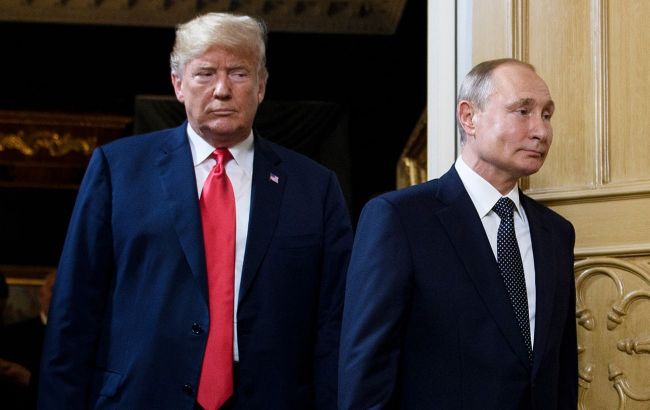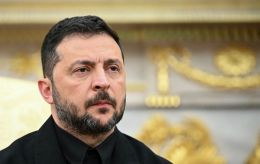Putin to extract as much as possible from Trump's desire for peace deal - NYT
 Photo: Putin uses talks with Trump to achieve his goals (Getty Images)
Photo: Putin uses talks with Trump to achieve his goals (Getty Images)
Moscow sees economic and geopolitical benefits in pandering to US President Donald Trump's desire for a ceasefire in Ukraine. But the Kremlin's military goals have not changed, The New York Times reports.
As noted in the agency, Trump said that he is focused on stopping the "death march" in Ukraine "as soon as possible." However, for Vladimir Putin, the ceasefire talks with Trump are a means to a much broader end.
Russian and American officials are set to meet in Saudi Arabia on March 24 to continue negotiations on the technical details of a partial ceasefire to end attacks on energy facilities and ships in the Black Sea. While Ukraine says it is ready for a full ceasefire, Putin has made it clear that he will first seek a wide range of concessions.
As a result, the Kremlin seems determined to squeeze as much benefit as possible out of Trump's desire to conclude a peace deal with Ukraine, even if he is slowing down the negotiations. From Moscow's point of view, improved relations with Washington are an economic and geopolitical boon - one that can be achieved even if Russian missiles continue to fire at Ukraine, according to The New York Times.
Putin's goals
Interviews last week with senior Russian foreign policy officials at a security conference in New Delhi revealed that the Kremlin views the Ukraine talks and US-Russia ties as going in two separate directions. Putin continues to seek a far-reaching victory in Ukraine but is pandering to Trump's desire for a ceasefire to take advantage of a thaw with Washington, The New York Times writes.
Vyacheslav Nikonov, deputy chairman of the lower house of the Russian parliament's international affairs committee, said that Trump and Putin are developing a “bilateral agenda” that “not connected to Ukraine.”
“Ukraine is running its course,” Nikonov said in an interview on the sidelines of a conference in New Delhi called the Raisina Dialogue. “The offensive is ongoing,” Nikonov added. “But I think that for Putin, relations with America are more important than the question of Ukraine specifically.”
Moscow seems to think that engaging with Trump could open up economic benefits as basic as spare parts for Russian Boeing aircraft and geopolitical benefits as broad as reducing NATO's presence in Europe. What is less clear is whether Trump will use these hopes as leverage to get a better deal for Ukraine and whether he will lose patience with Putin at some point.
At a meeting in Moscow with White House envoy Steve Witkoff this month, Putin handed him a “beautiful portrait of President Trump” commissioned by a Russian artist, Mr. Witkoff said in an interview. “It was such a gracious moment,” Witkoff told former Fox News host Tucker Carlson.
Putin has shown no signs of abandoning his long-term goals of guaranteeing that Ukraine will never join NATO, rejecting the Western alliance in Central and Eastern Europe, limiting Ukraine's armed forces, and exercising a certain level of influence over Ukraine's domestic politics, the agency notes.
According to the KIIS poll, two-thirds of Ukrainians (66%) believe that Russia's goal is to destroy Ukraine and Ukrainians.
According to a poll conducted by the Democratic Initiatives Foundation and the Razumkov Center, 76% of Ukrainians believe that all Russians are responsible for the aggression against Ukraine. Also, the majority of respondents (59.5%) are convinced that regardless of the outcome of the current war with Russia, Russia will attack Ukraine again in the future.

